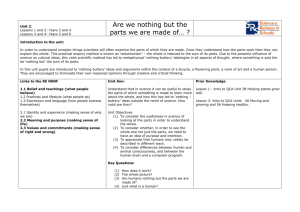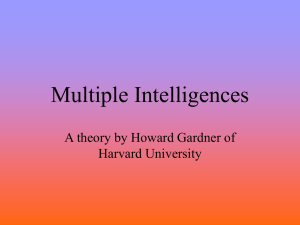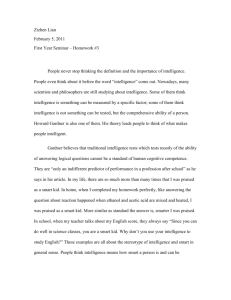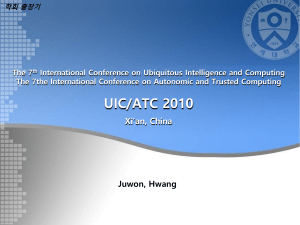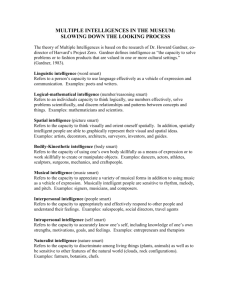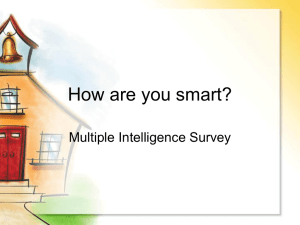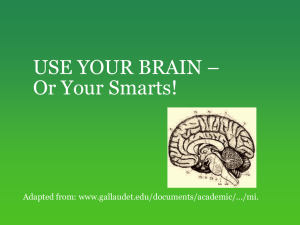WEE LEARN CURRICULUM
advertisement
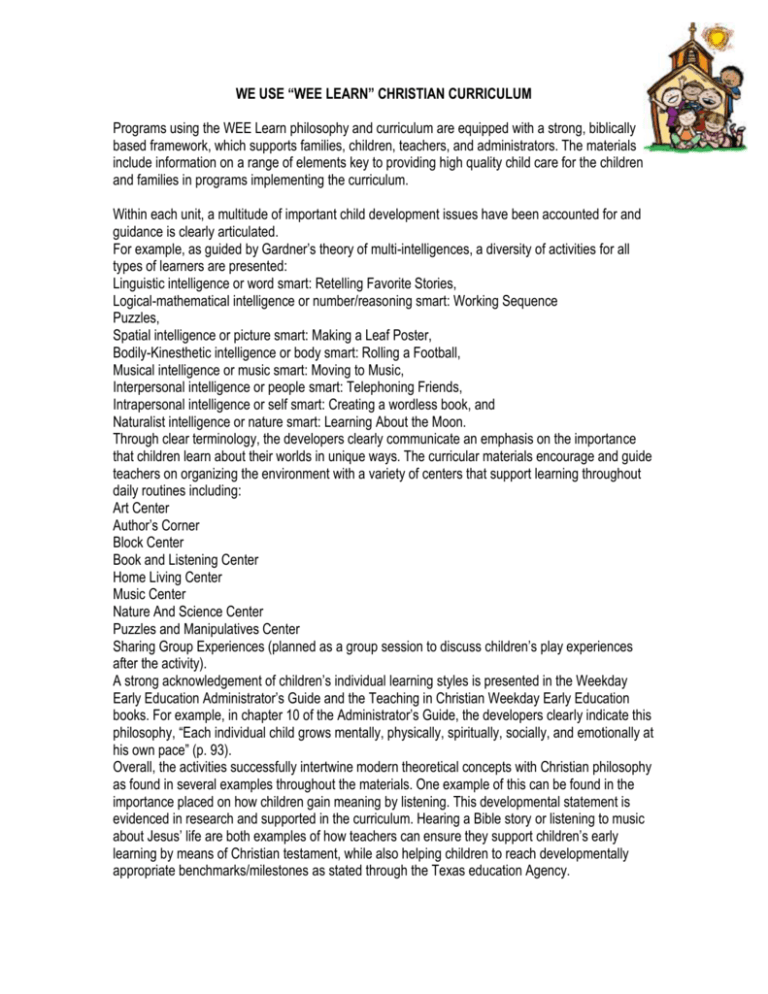
WE USE “WEE LEARN” CHRISTIAN CURRICULUM Programs using the WEE Learn philosophy and curriculum are equipped with a strong, biblically based framework, which supports families, children, teachers, and administrators. The materials include information on a range of elements key to providing high quality child care for the children and families in programs implementing the curriculum. Within each unit, a multitude of important child development issues have been accounted for and guidance is clearly articulated. For example, as guided by Gardner’s theory of multi-intelligences, a diversity of activities for all types of learners are presented: Linguistic intelligence or word smart: Retelling Favorite Stories, Logical-mathematical intelligence or number/reasoning smart: Working Sequence Puzzles, Spatial intelligence or picture smart: Making a Leaf Poster, Bodily-Kinesthetic intelligence or body smart: Rolling a Football, Musical intelligence or music smart: Moving to Music, Interpersonal intelligence or people smart: Telephoning Friends, Intrapersonal intelligence or self smart: Creating a wordless book, and Naturalist intelligence or nature smart: Learning About the Moon. Through clear terminology, the developers clearly communicate an emphasis on the importance that children learn about their worlds in unique ways. The curricular materials encourage and guide teachers on organizing the environment with a variety of centers that support learning throughout daily routines including: Art Center Author’s Corner Block Center Book and Listening Center Home Living Center Music Center Nature And Science Center Puzzles and Manipulatives Center Sharing Group Experiences (planned as a group session to discuss children’s play experiences after the activity). A strong acknowledgement of children’s individual learning styles is presented in the Weekday Early Education Administrator’s Guide and the Teaching in Christian Weekday Early Education books. For example, in chapter 10 of the Administrator’s Guide, the developers clearly indicate this philosophy, “Each individual child grows mentally, physically, spiritually, socially, and emotionally at his own pace” (p. 93). Overall, the activities successfully intertwine modern theoretical concepts with Christian philosophy as found in several examples throughout the materials. One example of this can be found in the importance placed on how children gain meaning by listening. This developmental statement is evidenced in research and supported in the curriculum. Hearing a Bible story or listening to music about Jesus’ life are both examples of how teachers can ensure they support children’s early learning by means of Christian testament, while also helping children to reach developmentally appropriate benchmarks/milestones as stated through the Texas education Agency.

